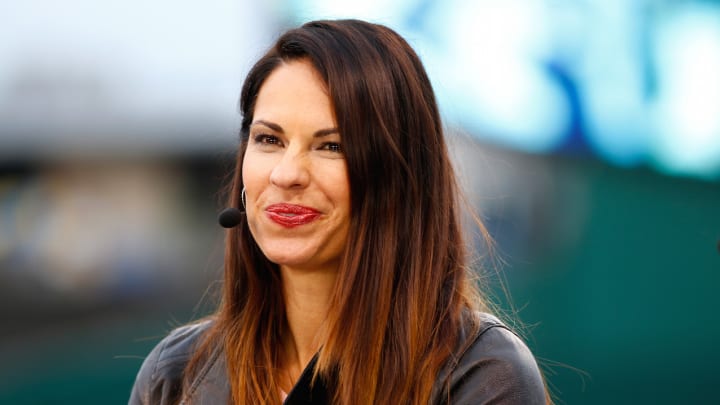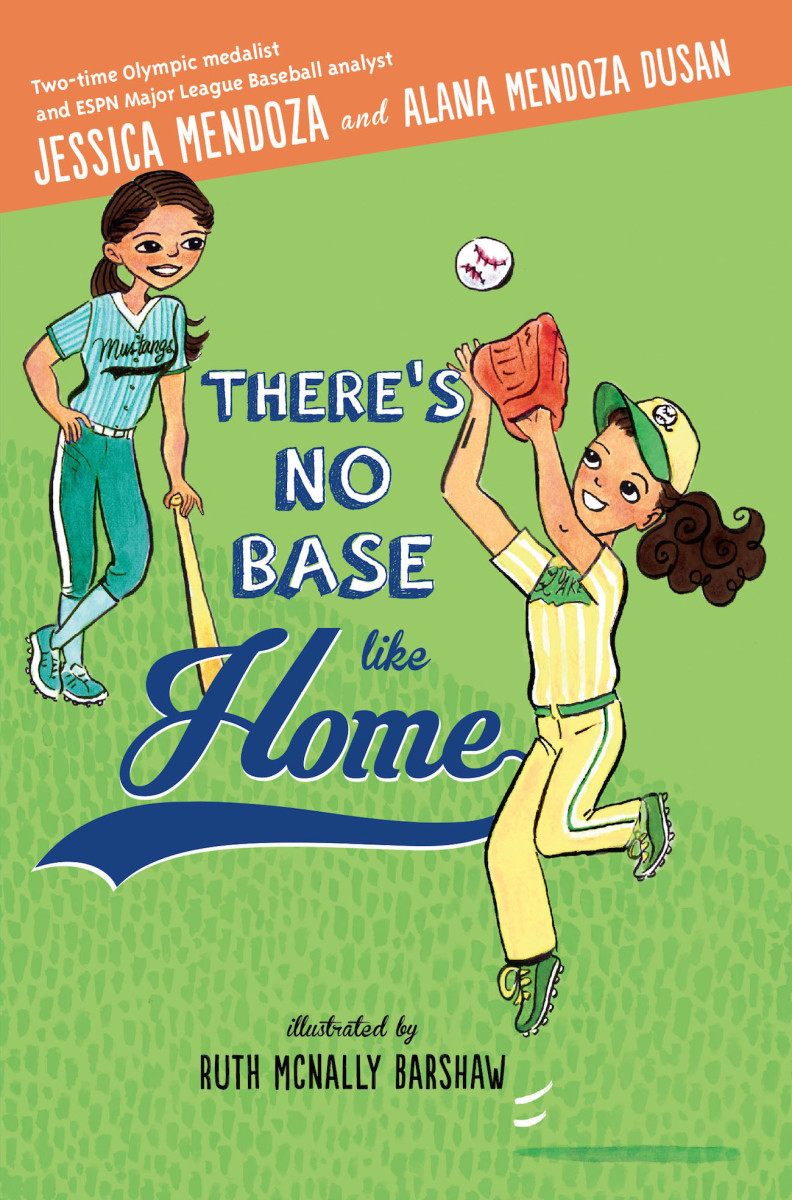Book Review: There's No Base Like Home

The book There’s No Base like Home is written by two-time Olympian Jessica Mendoza and her sister Alana Mendoza Dusan. Jessica is an MLB sports announcer for ESPN on Sunday nights. She lives in California and has two young boys.
There’s No Base like Home follows middle school student Sophia Garcia on her first year as a travel softball player. Sophia must go through many changes along her journey. Some include boys, friends and her clothing choices each day. The best part of this book is that it is written from Sophia’s perspective. This allows the reader to better understand what happens throughout the story because you get a first-hand account of what she’s experiencing. It's also great that that when Sophia’s team needs a new outfielder, she is the one who steps up to the challenge and helps her team overcome the odds. This book would be great for kids ages eight through 12.
Jessica Mendoza spoke with SI Kids about writing the book and staying true to who you are.
Is Sophia Garcia a real person, or is the book more of a story about what you went through growing up?
She is not a real person but the book is pretty similar to my sister and my childhood, and what we remembered as kids playing softball.
What did you hope to teach kids by writing this story?
Just to stay true to who you are. I know that sounds pretty simple but when Sophia was trying to decide if she should hang out with her cousin who’s got this more Mexican background or her best friend who is blonde and wants to go shopping with boys all the time—I didn't really fit that mold either. I really wanted to be a pitcher but there’s a part of me that is really more suited for the outfield. I really want girls and boys that read this story to be able to say, “I just want to be me." I don’t want to be what everyone else is telling me to be. I don’t want to be what my friends are pressuring me to be. I think we are all very different and the more we can embrace our differences is when we start to stand out and be really, really special.
Has your experience as a high-level athlete affected the moral of the story?
I look back on Sophia’s age and that to me was the most important time as far as who my friends were, how I viewed my family and how important my family was in my life. That’s why I wanted to take that portion of even my own memories to put in to a character rather than just talking about being at the Olympics when I am in my 20’s or playing professionally when I’m in my 30’s or being on TV now. To me the most important time was those years that I was making important decisions.
What type of connection do you personally have to this book?
It’s so close to my heart. Sophia is not a true character, but she is very much [like] my sister and I and so is her sister Ellie. Even the parents in the story, my dad has that same big mustache like in the illustrations in the book. I actually got emotional when I first read the book when it was done and finished because it very much is connected to my own childhood. The core of the book is very true to how I grew up and the family support that I had around me.

How did you come up with this story line?
I liked the idea of a diary concept so that you could really get her thoughts in a way that was very much like her talking to the reader. So, her saying things like “gosh today was really hard” or “I’ve got a challenge right now with one of my best friends and she is really pressuring me to do this.” I wanted her to be talking to you so that you get a sense like you almost kind of know her and not some abstract character.
How did you come up with the setting?
It was through a lot of interviews with the publisher and then drawing that out of us. It’s a process because I’m not a natural writer and author and neither is my sister. All the setting points came from being asked about our childhood. That’s how we came up with travel ball and Sophia trying to make a team and middle school. Talking around the lockers in between classes, going to movies with boys— this came out of questions about our own childhood and what was important during that time in our life.
What was the most challenging part of writing this book?
I think just the time that it takes. You want to do it right and when you haven’t done something before it takes time. For me, I’m balancing being a mom and a job on ESPN that I’m traveling all over for. I think that was the most challenging part and why it took longer that I initially anticipated. Prioritizing the time to really sit down and dedicate the energy to do it right, not just write something. There’s a difference between doing it just to do it and doing it with passion and feeling and really taking yourself back somewhere. I really wanted to do it right. It ended up taking me somewhere between two and three years. My sister was an English teacher and my publisher brought up the idea of her helping me to write this. That’s when it really started to take off and we could collaborate and finish the book.
Was there a girl like Teresa that was a real part of your life?
No, my sister and I kind of made up characters in and around that were part of our lives. Sophia was definitely her own. She wasn’t like anyone we had ever known or seen. She was kind of a combination of a lot of people including both my sister and me. What we did was we built characters around her that were very much a part of our lives including Sophia’s best friend, obviously her family, even some of the boys she interacted with. One of the boys in the story is named Caleb, and that’s my sons name. So, we even incorporated some of our own family names.
Did your sister ever motivate you to try harder?
Yes, she did all the time even though she was my younger sister. I think that there was some motivation on both ends but her and I are very different. There are few things that we are alike in and I think that can be motivation because I think a lot of times you try to surround yourself with people that are like you. To me when you surround yourself with people that think differently than you do, it challenges you in ways that ends up kind of motivating you. My sister is someone that is very smart, very caring, also just approaches life in a much more casual way that allows me to see things a little simpler. Which is needed for me at times since I’m more passionate and a little intense. It bonded her and I in a way that brought us together even closer. Which at the end of the day is something that I will take with me for the rest of my life.
Do you plan to have a follow up story to this book or to write any other books?
Yes, I think that when we started writing there was an intention for this to be a series. It will depend on how this book is received. I love the idea of following Sophia as she grows up. For girls at the same age who are reading it, I think it would be cool to see if they are going through any of the same things as both the reader and Sophia get older. It doesn’t end with everything that happens in this book. She has more out there as far as challenges and who she is.
Photographs by (from top): Maxx Wolfson/Getty Images; Courtesy of Lee & Low Books
